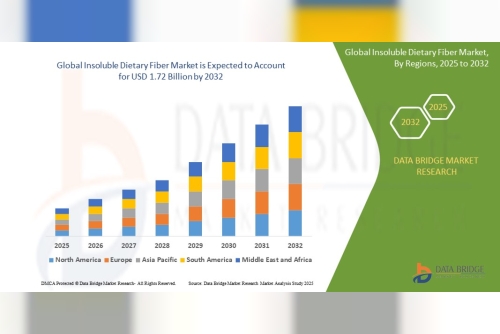In today’s fast-paced business environment, enterprises are constantly searching for ways to increase operational efficiency, improve customer experience, and drive growth. One of the most promising innovations in AI is the introduction of vertical AI agents - AI systems tailored to specific industries or business functions. These specialized AI agents are designed to understand, process, and deliver solutions tailored to unique sector-specific needs, making them an invaluable asset for organizations aiming to streamline operations and deliver more personalized services.
But what is a vertical AI agent? Simply put, a vertical AI agent is an AI-driven tool or system that is specifically designed for a particular industry, business vertical, or function. Unlike general-purpose AI, which can perform a broad range of tasks, vertical AI agents are deeply integrated into specific workflows, providing highly relevant insights and solutions that cater to the unique challenges faced by businesses in sectors like healthcare, finance, retail, manufacturing, and more.
In this blog, we’ll explore the top benefits of using vertical AI agents in enterprises and how they can revolutionize business operations.
1. Tailored Solutions for Industry-Specific Needs
The primary advantage of using vertical AI agents is that they provide tailored solutions. These agents are built with in-depth knowledge of the specific challenges faced by businesses in a given industry. For instance, a vertical AI agent for the healthcare industry will be designed to understand medical terminologies, patient data, regulatory requirements, and industry-specific workflows. Similarly, a vertical AI agent for the retail sector can be customized to optimize inventory management, customer experience, and sales forecasting.
By offering specialized knowledge and deep integration with industry workflows, vertical AI agents enable businesses to achieve better accuracy and efficiency than generic AI solutions. This makes them a powerful tool for companies looking to address sector-specific challenges and optimize their operations.
2. Increased Efficiency and Productivity
Vertical AI agents can significantly improve efficiency and productivity by automating routine tasks and processes that were once time-consuming and prone to human error. For example, in a financial institution, a vertical AI agent can automate the process of risk assessment, financial forecasting, and fraud detection, reducing the need for manual intervention and speeding up decision-making processes.
In industries like customer service, vertical AI agents can be deployed as chatbots or virtual assistants to handle repetitive inquiries, support ticket management, and even personalized recommendations. This not only saves time but also frees up human employees to focus on more complex and high-value tasks, driving greater productivity across the organization.
3. Improved Customer Experience
One of the most tangible benefits of using vertical AI agents is the enhancement of customer experience. These agents are equipped to understand customer needs and preferences, enabling businesses to deliver highly personalized services. For example, in the e-commerce sector, a vertical AI agent can track customer purchase behavior, preferences, and browsing history to recommend products that are more likely to convert.
Furthermore, vertical AI agents can handle real-time queries and provide instant responses, significantly improving the speed and quality of customer interactions. This can lead to greater customer satisfaction and loyalty, as customers feel understood and valued when they interact with businesses that use AI-driven solutions designed for their specific needs.
4. Data-Driven Decision Making
Vertical AI agents excel in leveraging large volumes of data to generate actionable insights. By analyzing data in real-time, these AI agents can identify trends, patterns, and opportunities that might otherwise be overlooked by traditional analytics methods. For example, in the manufacturing industry, a vertical AI agent can monitor production lines, detect anomalies, and predict maintenance needs, preventing costly downtime and improving operational efficiency.
For businesses in sectors such as finance, healthcare, or logistics, vertical AI agents can help generate insights from vast amounts of industry-specific data, enabling decision-makers to make more informed, data-driven choices. This improves strategic planning and allows businesses to stay ahead of the competition.
5. Cost Savings and Resource Optimization
Adopting vertical AI agents can result in significant cost savings and help optimize resource allocation. By automating processes that would otherwise require human intervention, businesses can cut down on labor costs and minimize human errors. For example, in the insurance industry, vertical AI agents can automate claim processing, reducing administrative overhead and speeding up the claims lifecycle.
Additionally, vertical AI agents can optimize the use of existing resources, whether it’s labor, inventory, or infrastructure. In industries like manufacturing, AI-driven predictive maintenance can help companies avoid costly equipment failures by ensuring that resources are only used when necessary, reducing the need for expensive repairs and downtime.
6. Scalability and Flexibility
As enterprises grow, they need scalable solutions that can adapt to increasing demands. Vertical AI agents are designed to be flexible and scalable, making them an ideal choice for businesses looking to expand without compromising on quality or performance. For example, a retail business that starts with a single store can scale its AI-driven operations as it expands into multiple locations, ensuring consistency and efficiency at every stage.
Because vertical AI agents are tailored for specific industry needs, they can be easily integrated into existing systems and workflows, allowing businesses to scale their operations without the need for significant infrastructure overhauls.
7. Enhanced Compliance and Risk Management
In industries like healthcare, finance, and legal services, compliance with regulations and effective risk management are paramount. Vertical AI agents can be designed to help businesses comply with industry-specific regulations, reduce risk exposure, and enhance overall governance.
For example, a vertical AI agent in the healthcare sector can help monitor patient data security and ensure that the organization adheres to HIPAA regulations. Similarly, in the finance industry, AI agents can monitor transactions for signs of fraud or money laundering, ensuring that businesses comply with financial regulations and mitigate potential risks.
8. Competitive Advantage
Finally, leveraging vertical AI agents can provide businesses with a competitive advantage. Companies that adopt AI-driven solutions tailored to their industry can outpace competitors who rely on generic tools. With vertical AI agents, businesses can optimize every aspect of their operations—from customer service and marketing to inventory management and financial forecasting—giving them a unique edge in the marketplace.
By using specialized AI tools, enterprises can adapt quickly to market changes, innovate faster, and provide superior products and services, making them more attractive to customers and investors alike.
Bottom Line
Vertical AI agents are revolutionizing how enterprises operate, offering a wide range of benefits tailored to specific industries. From improving operational efficiency and customer experience to driving data-driven decision-making and enhancing compliance, these specialized AI systems are designed to address the unique challenges faced by businesses in various sectors.
By adopting vertical AI agents, companies can achieve better scalability, cost efficiency, and competitive advantage, all while maintaining high standards of service and innovation. As the business world continues to evolve, embracing these AI-driven solutions will be key to staying ahead of the curve and unlocking long-term success.













??????????? ????! ??????? ??? ?????? ???????? ?????????? ??????????? ????? ????????. ??? ??????????? ??????????, ??????? ???????? ???????? ????? ???????? ? ??????????? ??????? ? ??????????.
15 ??? ???????? ?????? http://aldial.ru/stati.html ??? ?????: ??, ? http://aldial.ru/dymnik-standartnyj.html ??????????, ?? http://aldial.ru/parapet-dvuhskatnyj-s-kapelnikom.html ???????? 3?
?????? ?????? ??????? ????? ??????? https://jsm-service.ru/arenda ???? ???? ? ??? ???????? ?????????, ????? ??????? ? ?????????????????, ??? ????? ??????????????? ?? ????????? ????? https://jsm-ser
acheter viagra 100mg acheter viagra france